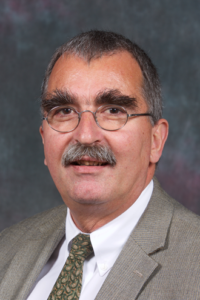 Improving the efficiency of what we do is on everybody’s radar these days. Our health care system, our hospitals, and our clinics are no exception. Efficiency stands for doing things right. Doing things right is per se not wrong: nobody can reasonably argue with seeking to eliminate organizational waste in order to deliver health care in a sustainable fashion.
Improving the efficiency of what we do is on everybody’s radar these days. Our health care system, our hospitals, and our clinics are no exception. Efficiency stands for doing things right. Doing things right is per se not wrong: nobody can reasonably argue with seeking to eliminate organizational waste in order to deliver health care in a sustainable fashion.
Sustainability, however, pertains to aspects beyond economics and from a provider perspective includes, in my opinion, things that are more difficult to assign a $ value to, such as work place satisfaction and employee engagement. “The only way to do great work, is to love what you do”, as Steve Jobs is quoted having once said. Seeking efficiency by top-down defining the route to the goal in every detail and forcing to fill in yet another form to prove compliance, whether on paper or electronically, adds more often nothing than administrative waste. In fact, it may hinder true productivity of health care delivery to our patients. Too many regulations lead to disengagement of those who do the work, as they become frustrated by feeling forced to just follow the rules (often in front of a computer screen) set by some remote administrative body and no longer being able to focus their energy on what is dear to their heart, e.g. caring for patients. Do those who do the work on the ground not often know best how to reach the goal by adapting their approach to a changing situation/environment? Would it not often be better to clearly define the goal of the organizational unit, not the path to it, and just hold frontline staff accountable for reaching that goal? In many countries, even prototypic hierarchical organizations such as the military have learned their lesson and adopted a goal oriented command model.
Moreover, delivering health care is not a simple assembly line and consists of more than a series of technical processes that are amenable to optimization by engineering. Thus, trying to optimize efficiency in health care delivery using a similar approach to that established for a production plant or an assembly line of cars may defeat its purpose. In fact, it may create new organizational waste – and potentially more than it intends to eliminate. By feeling forced to shut down common sense, providers run the danger of bringing to perfection complying with a “system” and its “administrative processes”, i.e. focus on doing highly efficiently what hinders efficient delivery of care to the patient.
Effectiveness is another fashionable word these days. And efficiency and effectiveness are often and wrongly used interchangeably. Effectiveness, however, stands for doing the right things. We can hardly dispute that health care delivery should be effective. But what is the “right thing” in delivering health care? In a very broad sense, one may say, the right things are to help an individual to stay healthy (prevention) and, if that fails and the individual falls sick, to support the healing process (treatment); sometimes healing (cure) is no longer an option and minimizing suffering (palliation) has to suffice.
Prevention, healing and palliation require content competency with respect to knowledge and technical skills. One may call this the science of Medicine. Effective prevention, healing and palliation, however, go far beyond scientific content aspects and encompass not only interpersonal skills, but even broader domains of human existence. All too often we seem to forget about these. We all have anecdotally witnessed that the best delivery of evidence-based interventions can be futile if a patient has given up fighting. Healing is not fully promoted by efficiently and effectively delivering an evidence-based intervention. Healing encompasses more including promoting the well-being of a sick individual in all his/her dimensions. Only this enables a patient to add his/her part to the healing process and allow making the evidence-based intervention a success. Terms such as Medical Humanities and the Art of Medicine try to address these other dimension of healing. These may include supporting the healing process by healthy food (would you order our hospital food for dinner?), a view of or, even better, spending time in a hospital garden (where have they gone?), exposure to the soothing atmosphere of music or visual art (could you relax on one of our wards?), the company of a caring support person (is there room for them in our patent rooms?), or a comforting chat with a provider (do we have time for that?).
Our hospitals may have become and may continue to become more efficient, but doing efficiently what is not effective, misses the point and is the worst that can happen in an enterprise. Let’s not forget about the other than fiscal dimensions that contribute to effective health care delivery, let’s strengthen the art of medicine and the humanities component of health care.
Recommended reading: God’s Hotel by Victoria Sweet (https://www.amazon.ca/Gods-Hotel-Hospital-Pilgrimage-Medicine/dp/1594486549)

